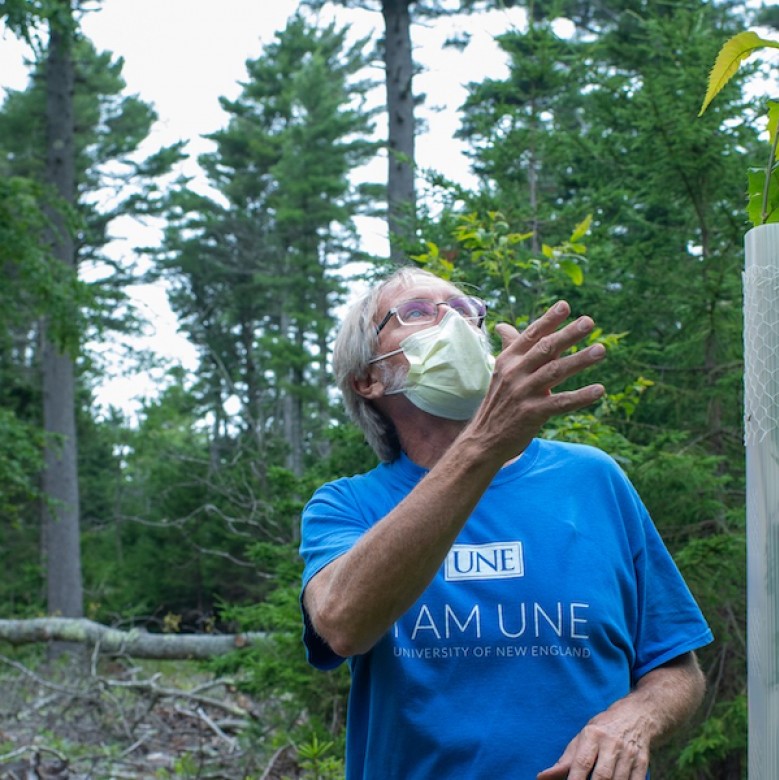
For months UNE’s environmental studies professor Thomas Klak and his undergraduate students have been speed-breeding chestnut pollen under high-intensity lights in the greenhouse and plant growth chamber in the Alfond Center for the Health Sciences. The pollen they have produced is blight-tolerant, having an extra gene from wheat that protects the tree from the imported fungal blight that has killed 3 Billion chestnuts from Maine to Alabama. Then in July 2020, under USDA permit, Dr. Klak and his team, including UNE alum Flynn Willsea (Environmental Science ’19) for the first time pollinated some of the few surviving Maine chestnut trees to produce offspring that can tolerate the blight. It’s a major step toward having chestnut trees that can repopulate Maine for the benefit of the environment, wildlife, and also people, since chestnuts are tasty and nutritious.
Media coverage:
https://www.concordmonitor.com/chestnut-tree-transgenic-GMO-blight-35126123
http://www.une.edu/news/2020/american-chestnut-restoring-keystone-species
https://www.pressherald.com/2020/07/23/une-professor-fights-blight/
https://www.nhpr.org/programs/exchange
Forthcoming publication with two students and colleague Professor Woon Yuen Koh:
“Comparison of Four Methods for Non-Destructive Testing of Chestnut Seeds for OxO Gene Activity”
By Thomas Klak, Woon Yuen Koh, Tyler Riendeau, Andrew Grammas
Chestnut Journal, Fall 2020.
Project is funded by grants from the Quimby Family Foundation, the American Chestnut Foundation, and UNE’s Office of Research and Scholarship.
Thomas Klak | Professor, Dept of Environmental Studies; Decary Hall 213A2
University of New England; Biddeford, Maine 04005 USA | 207-391-9496
207 News Piece on UNE Chestnut Restoration
research & interests ; UNE’s American chestnut restoration progress in the news
